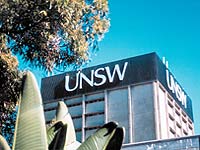| Pure Mathe - MATHP13972 |
|
|||||||||||||||||||||||||
|
Plan Summary
This plan is for a major in Pure Mathematics within an Advanced Science degree program.
Pure Mathematics is mainly concerned with understanding and developing the concepts and principles underlying mathematics, rather than with the mechanics of calculating specific numerical answers or finding exact formulae for the solution of various problems. While an Applied Mathematician might be looking for the exact value of the sum of a series or for a rapidly converging approximation to the solution of a differential equation, the Pure Mathematician is more likely to be concerned with whether the series does really converge or whether the differential equation does have a (unique) solution and whether that solution behaves in a particular way. Studying Pure Mathematics enables you to master a broad range of mathematical techniques that will lead to a mastery of the fundamental processes of mathematical science and the capacity for innovative applications in any area. Three `core' second year courses in Pure Mathematics show you the basic principles which support enormous areas of mathematics and its applications. These are MATH2011 Several Variable Calculus, MATH2501 Linear algebra and MATH2520 Complex Analysis (or their Higher counterparts).
These courses are vital for anyone who wants to go further in mathematics. There are four other Pure courses which are valuable to all mathematicians but particularly relevant if your interests are at all related to computer science. The first is MATH1081 Discrete Mathematics, which you may already have done in first year. This provides the background in logic and abstract modes of thought which is so necessary in(theoretical) computer science. Two others are MATH2400 Finite Mathematics, which shows how to develop codes based on the arithmetic of integers and finite fields, and MATH2430 Symbolic Computing, which considers how computers represent and manipulate symbolic and exact data. (NOTE: MATH2430 is not currently offered.) The fourth is MATH3411 Information Codes and Ciphers Advanced Science Study Plan (3972)
Stage 1
Stage 2
Stage 3
Stage 4
Choose ONE from the following:
|
||||||||||||||||||||||||||

| Contacts | Library | myUNSW | WebCT |
